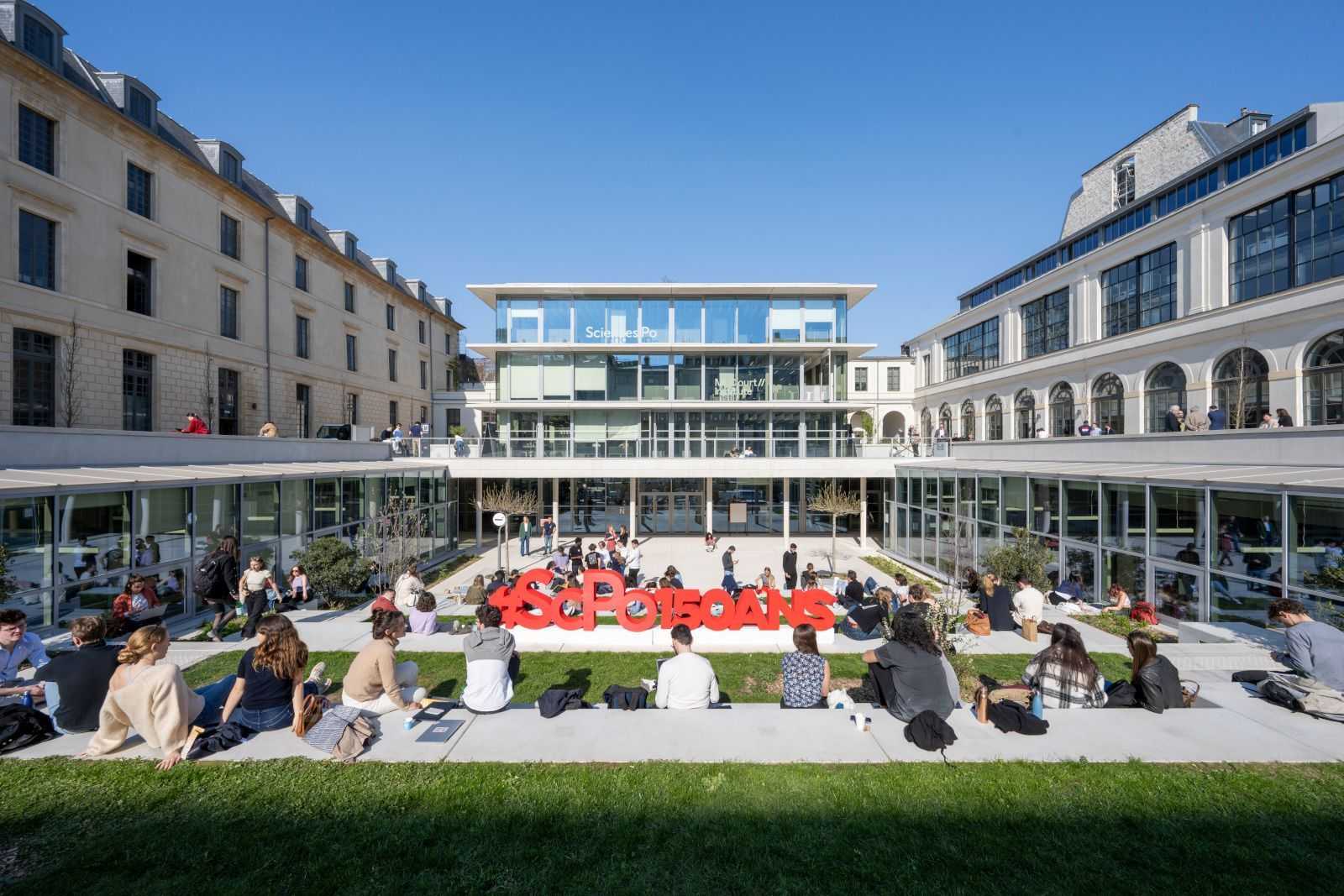
Home>International>Sciences Po and the world>Latin America and the Caribbean
Sciences Po and Latin America and the Caribbean
The Latin America and Caribbean region encompasses the landmass stretching from Mexico to Chile, together with island nations bordering the Caribbean Sea. Since the 1990s, Sciences Po has worked actively to develop partnerships relating to teaching, research, funding and recruitment, with a view to spotlighting the richness and diversity of this part of the Americas.
Sciences Po's academic network in the region now has more than 45 partners, in 12 different countries. In addition to offering dual degrees and student and faculty mobility programmes with the region’s leading private and public higher education institutions, Sciences Po also works closely with foundations and government agencies in several countries, including Brazil, Chile, Colombia and Mexico.
Sciences Po's partners in Latin America and the Caribbean
Recognising the linguistic and sociocultural diversity of the academic landscape in the region, Sciences Po has forged links with leading public and private universities throughout the continent. In Latin America, Sciences Po has developed a partner network of nearly 46 higher education institutions in the main cities in Argentina, Brazil, Colombia, Costa Rica, Chile, Ecuador, Mexico, Peru, Uruguay and Venezuela. More recently, the university has formed two partnerships in the Caribbean, with the Trinidad and Tobago and Barbados campuses of the University of the West Indies (UWI), one of only two regional universities in the world.
Integrated programmes and dual degrees in Latin America and the Caribbean
Sciences Po has developed integrated programmes with four universities in Latin America. These combined programmes enable international students in the region to graduate with both a Bachelor's degree from their home university and a Master's degree from Sciences Po (BA-MA). Sciences Po also offers a dual Master 's degree with the FGV EAESP (Escola de Administração de Empresas de São Paulo da Fundação Getulio Vargas) in São Paulo.
Academic programmes relating to Latin America and the Caribbean
- The Latin America-Caribbean Minor of the Bachelor’s degree programme at the Sciences Po Undergraduate College was introduced in 2001 on the Poitiers Campus. It offers a curriculum focusing on Latin America and the Caribbean, and exploring the richness, diversity and specific economic, social and cultural issues of the region’s countries and populations.
- At graduate level, students across all Master’s programmes at the Paris School of International Affairs (PSIA) have the option of taking a regional concentration in The Americas.
- At the School of Research, students can choose to specialise in South American politics as part of the Comparative Politics Major of the Master’s in Political Science (an exclusively French-language programme).
- Finally, at the Urban School, Latin American metropolises are featured on the regional studies syllabus within the Master Governing the Large Metropolis.
Research
The Observatoire Politique de l'Amérique Latine et des Caraïbes (“Observatory for Latin American and Caribbean Politics”) (OPALC)
Founded in 2007, the OPALC (Fr) is a politics research unit specialising in Latin America and the Caribbean. It brings together a group of professors, researchers and students at Sciences Po and other partner institutions. The unit’s research-related activities (specifically its research seminars (Fr) and annual publication, LAPO (Fr) fall within the remit of the Centre for International Studies (CERI), and it acts autonomously in other areas.
Partnership between the OPALC (CERI, Sciences Po) and Transparencia por Colombia (Fr)
This research-advocacy partnership between the OPALC and Colombian organisation Transparencia por Colombia, which is funded by the Fondation Charles Léopold Mayer pour le Progrès de l’Homme (FPH) considers the issues facing whistleblowers in Latin America. Since 2015, the project “Governance and Citizen Participation in the Andean Region” has worked to produce analyses and support advocacy work around issues of governance in Colombia and Latin America. It focuses particularly on the impact and influence of social and political participation in public action.
Find out more: Citizen Participation and Governance and the webseries Protestas.
Partnership between the OPALC (CERI, Sciences Po) and the French Ministry of the Armed Forces
The Observatoire stratégique de l'Amérique latine (“Strategic Observatory on Latin America”) is a research unit co-directed by Oliver Dabène and Gaspard Estrada, and based at Sciences Po's Centre for International Studies (CERI). With the support of the Directorate General for International Relations and Strategy (DGRIS) within the French Ministry of Defence (Fr), the unit aims to stimulate academic research into what historian Maurice Vaïsse once called “the blind spot of French diplomacy”. The goal is to analyse strategic shifts within the region and interrogate the primary defence and security issues for France. Analyses produced by the research unit are then presented by researchers at the CERI as part of the OPALC’s monthly seminar, “Los Últimos Jueves”.
Strategic projects
Prestigious scholarships from Latin American funding bodies:
Made possible by the support of the Luksic Scholars Foundation, which aims to foster links between Chile and universities worldwide, the Luksik Scholarship for Public Service at Sciences Po funds talented Chilean students to pursue a Master’s degree at the Sciences Po Paris School of International Affairs.
Thanks to an agreement between Sciences Po and the Fundación para el Futuro de Colombia (COLFUTURO) (Es), all Colombian students accepted onto a Master’s programme at the university (excluding dual degrees) are eligible to apply for the Programa Crédito Beca (a credit scholarship). Sciences Po selects a maximum of five candidates to receive the scholarship annually. More than 60 Colombian students have been awarded funding through the programme in the last 15 years.
This partnership agreement grants partial tuition fee waivers to Mexican graduate students receiving a Conahcyt government scholarship. Every year, five Mexican students enrolled in Master’s programmes at Sciences Po (excluding dual degrees and one-year Master’s) receive waivers through the programme.
Key Figures
48
university partnerships in Latin America and the Caribbean
5
dual degree or integrated programme partners (BA-MA)
450
Latin American and Caribbean students at Sciences Po
130
Sciences Po students studying abroad and 80 students on an internship in the region every year
5%
of recent Sciences Po graduates employed abroad work in Latin America or the Caribbean


